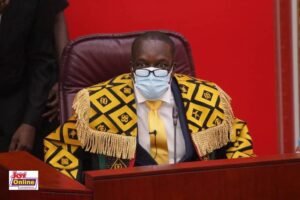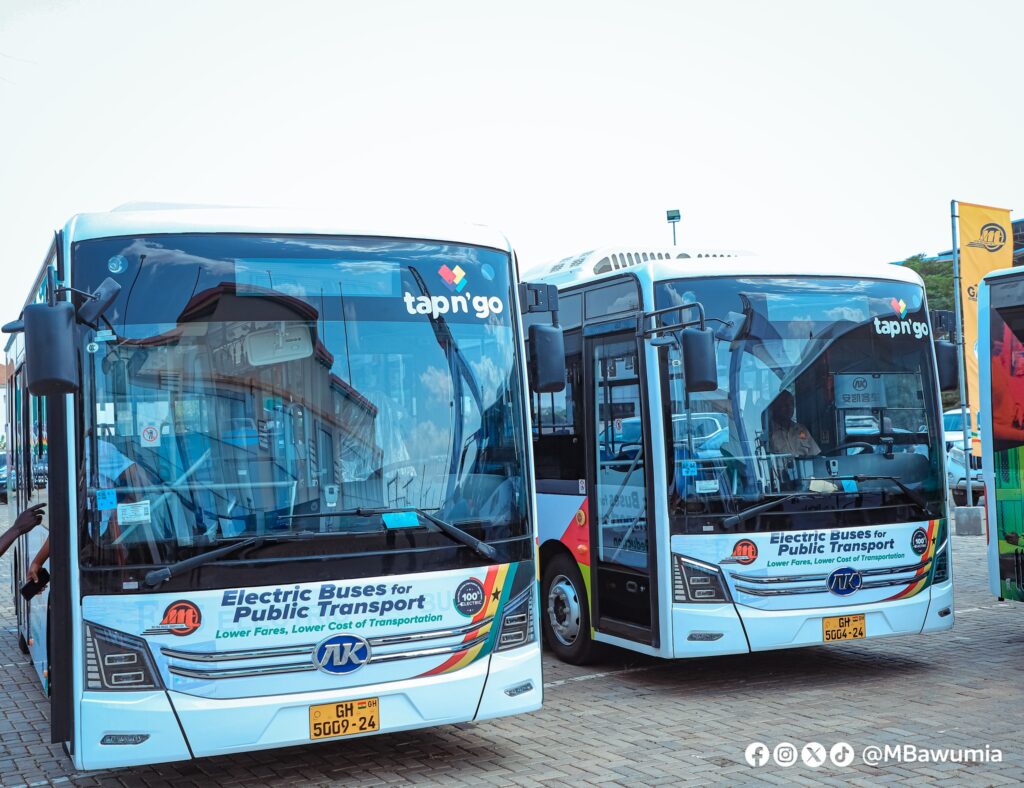
The Vice-President and NPP Flagbearer, Dr. Mahamudu Bawumia, has inaugurated Ghana’s first fleet of electric buses, signalling a transformative shift in the nation’s public transportation system.
The buses, which operate via electric charging systems instead of fuel, are expected to significantly reduce transportation costs while offering a cleaner alternative for urban mobility.
Speaking during the launch in Accra yesterday, Dr. Bawumia described the introduction of the buses as a historic moment that embodied a “mindset of possibility”, and aligned Ghana with global best practices in sustainability and innovation.
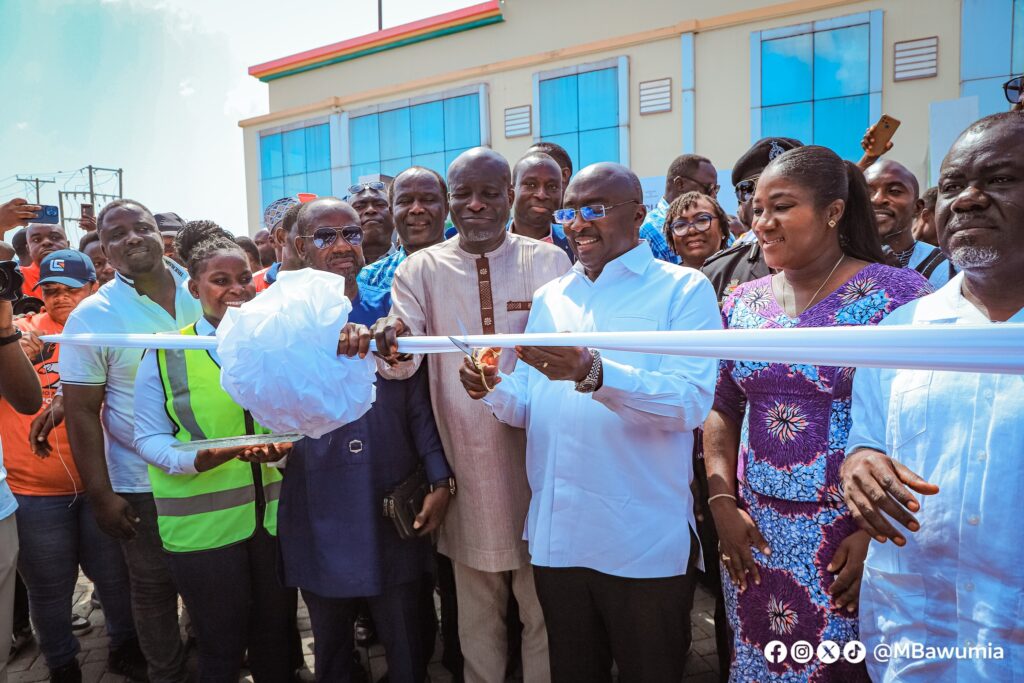
Voter compass
Dr. Bawumia stated: “Today, we are making history with the commissioning of these electric buses. It represents a visionary shift in how we approach public transport. Today, we are taking a definitive step towards revolutionising the transport sector with sustainability and innovation at its core”.
He also highlighted the environmental benefits, noting, “The use of fossil fuel-powered vehicles, its impact on climate change and air pollution, are no longer distant threats but urgent realities that demand immediate action.”
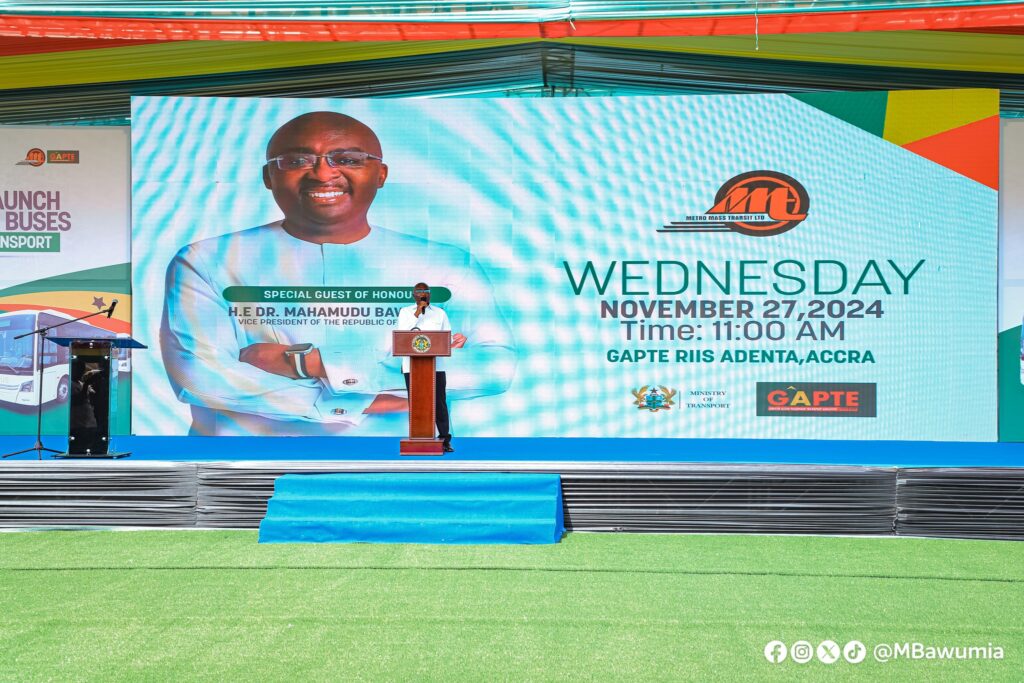
Economic impact
Dr. Bawumia emphasised the financial relief the electric buses would provide for both operators and passengers. With operational costs estimated to be 50 percent lower than those of diesel-powered buses, the initiative is expected to make public transport more affordable.
“The economic benefits of using electric buses cannot be overemphasised. Electric buses offer lower operating and maintenance costs compared to conventional diesel buses. This will translate into more efficient resource use, lower transport fares, and enable Metro Mass to invest in fleet renewal and expansion,” he explained.

First phase deployment
He explained that the initial phase of the electric bus rollout would service the Adenta–Accra and Ashaiman–Accra routes. Next year, the programme would expand, with additional buses set to serve other parts of the country.
Dr. Bawumia addressed scepticism surrounding the project, stating, “As usual, many said it was not possible. They said it was an election promise that would not be fulfilled. But that has been their mindset of impossibilities over the past 8 years. If other countries could deploy electric buses, why not Ghana?
No secret
Dr. Bawumia said it was no longer a secret that “we urgently need to improve the quality of our public transport services”.
Starting with the public transport operators such as GPRTU and the trotro sub-sector, he promised to work closely with the Greater Accra Passenger Transport Executive (GAPTE) to embark on a Fleet Renewal Programme through the deployment of E-Vehicle.
This, he indicated, would be achieved through an improved public transport regulatory system, enabling the government to acquire the necessary regulatory data to support a fleet renewal credit scheme.
“Now, the Ministry of Transport is undertaking nationwide dissemination of the National Electric Vehicle Policy to create the needed awareness and build support for its successful implementation,” he stated.
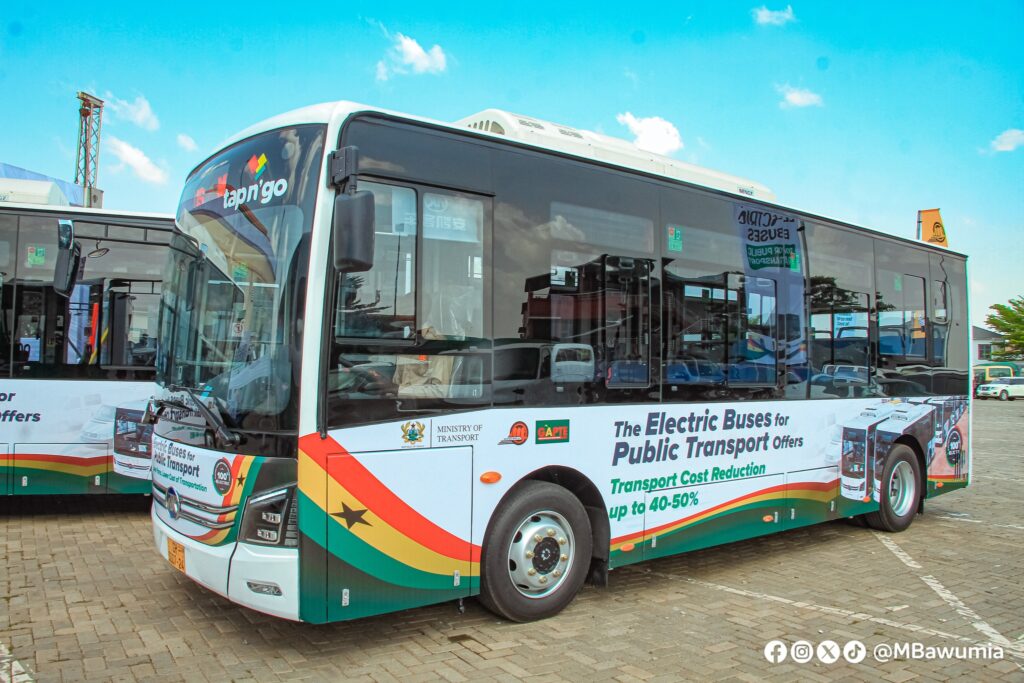
Reason
The NPP flagbearer stressed that the primary reason the local taxi vehicles and trotros were often old vehicles was the difficulty in repaying loans for new, expensive vehicles when used for operations. “A good way to resolve this issue is to leverage the Tap N Go system. This system will help local drivers conduct their transactions digitally, building their credit to obtain new vehicles on favourable credit terms,” he added.
He said it was crucial for “us to intensify our digitalization efforts, providing lending comfort to all potential investors through our digitalized operations”.
“Distinguished Ladies and Gentlemen, while today’s event is a cause for celebration, it is also a reminder that our journey is far from over. The commissioning of these buses is the beginning of a broader strategy to modernize and decarbonize the transport sector. I envision a future where electric vehicles are the standard, with modern technology playing a key part in it,” he said.
Innovation
Dr. Bawumia noted that this vision would require “us to be innovative in our approach to problem-solving and collaborate to build a seamless transportation system where one Tap n’ Go card can be used on all public transport vehicles, including our railway system”.
He added: “The road ahead will require the active participation of all and sundry, especially transport service providers. It will also require cultural and behavioural shifts that embrace sustainability. Government will, therefore, continue to seek partnerships, leverage on the collective experience of stakeholders to develop our nation”.

